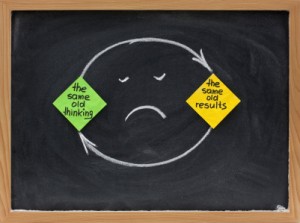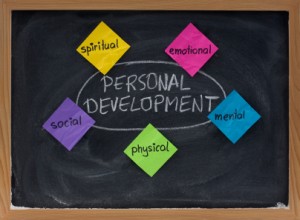 The last two weeks we have been delving into various aspects of health and their relationship to leadership. This week we are looking at “spiritual health.” Normally, we don’t hear the terms “spiritual” and “health” together and we certainly don’t hear them alongside “leadership.” But going back to what we have been saying the last two weeks –the healthier you are, the better your performance. Leaders need to be at their best, (and to reconfirm, when we say “leaders” we don’t mean those with big titles, we mean those who practice the positive qualities of leadership in their lives regardless of their role).
The idea of “spiritual health” or being spiritually healthy is not about whether you have a religion or not. It’s about whether you have a sense of being connected to something greater than yourself. How you define and express that connection is highly personal. You may feel connected to God, Divine Spirit, a greater consciousness or the greater good of the planet and its inhabitants. You may express it through religious affiliation, philosophical affiliation, meditation, yoga or another personal practice.
The last two weeks we have been delving into various aspects of health and their relationship to leadership. This week we are looking at “spiritual health.” Normally, we don’t hear the terms “spiritual” and “health” together and we certainly don’t hear them alongside “leadership.” But going back to what we have been saying the last two weeks –the healthier you are, the better your performance. Leaders need to be at their best, (and to reconfirm, when we say “leaders” we don’t mean those with big titles, we mean those who practice the positive qualities of leadership in their lives regardless of their role).
The idea of “spiritual health” or being spiritually healthy is not about whether you have a religion or not. It’s about whether you have a sense of being connected to something greater than yourself. How you define and express that connection is highly personal. You may feel connected to God, Divine Spirit, a greater consciousness or the greater good of the planet and its inhabitants. You may express it through religious affiliation, philosophical affiliation, meditation, yoga or another personal practice.
The question is, “how healthy are you in this arena right now?” How you would know is – do you actually feel connected to something larger than yourself? If you happen to be an atheist or agnostic it is still a valid question – do you feel a connection to the planet we live on and its inhabitants beyond just your personal existence?
What are your practices around this connection? If you find the connection is strongest through religious affiliation, have you been able to attend your church/synagogue/mosque lately? If it comes through philosophical contemplation have you read anything new and stimulating recently? If it comes through meditation and/or yoga are you making time for those practices? Do you spend time with like-minded people? Do you discuss your thoughts, questions, concerns and beliefs?
If you lead an organization of some type, have you considered the spiritual health of the organization? In the June 2008 issue of Ode Magazine, the cover story The Gospel According to Adam Smith was about “spiritual capitalism” http://bit.ly/Pdsv The article reviews some top organizations implementing spiritual values and the positive results that occurred. One of the people profiled was Art DeLorenzo who had been a Group Vice President at Ameriprise Financial. Here is an abbreviated excerpt from the article, “In 2000 after the dot-com stock market crash his team was dealing with especially heavy negativity. DeLorenzo contacted Rick Aberman, a developmental psychologist and founding partner of Lennick Aberman Group…and put him in touch with Fred Luskin, a psychologist who cofounded the Stanford University Forgiveness Project. …The trio developed a program based on Luskin’s “forgiveness” training. Why forgiveness? ‘Interpersonal kindness and goodwill that is almost unlimited…that is the spiritual basis of life’ said Luskin, who says we develop it by practicing what he calls ‘the three tenets’ of compassion, forgiveness and gratitude. “
The article continues, “The results of this training were encouraging. Participants showed an average 18 percent increase in commissions on sales compared to 11 percent for those who did not complete the training. In a sales environment, generating 7 percent more revenue than your colleagues is huge…Since this initial training each year participants have outstripped the average productivity of their peers. In 2008, Ameriprise decided to roll the program out to their Mid-Atlantic Market Group of 1,100 salespeople.”
By learning basic “spiritual health” tools in this program the sales people clearly displayed productivity increases in the workplace, and the company benefited from the spiritual health of its people.
This is just an example of why we are suggesting you evaluate the state of your spiritual health, and that if you are a business owner or organizational leader, you might want to consider the spiritual health of the group. Spiritual health creates a “win-win” for you, the team and the customers.

 Previously, we raised the idea that health is actually part of the larger conversation about leadership. If you aren’t at an optimum level of health you aren’t performing your best. We also raised the idea that there are multiple dimensions of health – mental, emotional, spiritual and of course, physical, (and there are even more). We wrote about the physical dimension and this week we want to go into the mental/emotional realm. These two are often collapsed together and there is no doubt they are inextricably linked. The term “mental health” often refers to our ability to handle our reactions to the circumstances and challenges that come up in our lives. In fact, the dictionary defines it as “psychological well-being and satisfactory adjustment to society and to the ordinary demands of life.” For the purposes of this post we are going to separate the two terms and define them a bit differently. When we talk about “mental health,” what we are pointing to is “intellectual health” – meaning
Previously, we raised the idea that health is actually part of the larger conversation about leadership. If you aren’t at an optimum level of health you aren’t performing your best. We also raised the idea that there are multiple dimensions of health – mental, emotional, spiritual and of course, physical, (and there are even more). We wrote about the physical dimension and this week we want to go into the mental/emotional realm. These two are often collapsed together and there is no doubt they are inextricably linked. The term “mental health” often refers to our ability to handle our reactions to the circumstances and challenges that come up in our lives. In fact, the dictionary defines it as “psychological well-being and satisfactory adjustment to society and to the ordinary demands of life.” For the purposes of this post we are going to separate the two terms and define them a bit differently. When we talk about “mental health,” what we are pointing to is “intellectual health” – meaning  how healthy and fresh are your thought processes? When was the last time you challenged yourself to learn something new? How much are you reading? (And not reports and emails! Reading fiction for fun, or non-fiction topics that interest you?) Do you do puzzles – crossword or otherwise - to stimulate your cognitive abilities? We often repeat the same thought patterns and think about the same subjects day in and day out. Learning something new helps keep your brain healthy and your perspective fresh. For more information on how to keep your brain and thinking healthy visit
how healthy and fresh are your thought processes? When was the last time you challenged yourself to learn something new? How much are you reading? (And not reports and emails! Reading fiction for fun, or non-fiction topics that interest you?) Do you do puzzles – crossword or otherwise - to stimulate your cognitive abilities? We often repeat the same thought patterns and think about the same subjects day in and day out. Learning something new helps keep your brain healthy and your perspective fresh. For more information on how to keep your brain and thinking healthy visit  If you find you are having trouble finding your passion, designing a future you are excited about or reaching particular goals and dreams then hire a coach. Ask around and find someone who has an approach you are excited about pursuing. Partner with your coach so that you have the support you need to get where you want to go.
If you find you are having trouble finding your passion, designing a future you are excited about or reaching particular goals and dreams then hire a coach. Ask around and find someone who has an approach you are excited about pursuing. Partner with your coach so that you have the support you need to get where you want to go. There are at least four dimensions of health – mental, emotional, spiritual and physical. It’s pretty self-evident that the healthier you are, the better you can perform. Performance is foundational to leadership yet health is rarely part of the leadership conversation.
There are at least four dimensions of health – mental, emotional, spiritual and physical. It’s pretty self-evident that the healthier you are, the better you can perform. Performance is foundational to leadership yet health is rarely part of the leadership conversation. er day, (8 ounce glasses that is). Yet how many of us do it? If you can just do this piece, your health will be improved simply because you will be hydrated. Don’t like plain water? Squeeze half a lemon or lime in it. Still not good? A splash of cranberry or pomegranate juice has health benefits and helps with the taste, (provided you are doing just splash and you are doing real juice, not the high sugar filled kind.) The basics are covered in the works of Dr. Weil and Dr. Oz we mentioned above and being hydrated is one example of improving your health without feeling like you are taking hours out of your day for a huge program.
er day, (8 ounce glasses that is). Yet how many of us do it? If you can just do this piece, your health will be improved simply because you will be hydrated. Don’t like plain water? Squeeze half a lemon or lime in it. Still not good? A splash of cranberry or pomegranate juice has health benefits and helps with the taste, (provided you are doing just splash and you are doing real juice, not the high sugar filled kind.) The basics are covered in the works of Dr. Weil and Dr. Oz we mentioned above and being hydrated is one example of improving your health without feeling like you are taking hours out of your day for a huge program. have been skipping tests, get them done. If you don’t like your current doctor, ask around. Check with a friend or colleague whose health you admire and get a new physician to work with.
have been skipping tests, get them done. If you don’t like your current doctor, ask around. Check with a friend or colleague whose health you admire and get a new physician to work with.